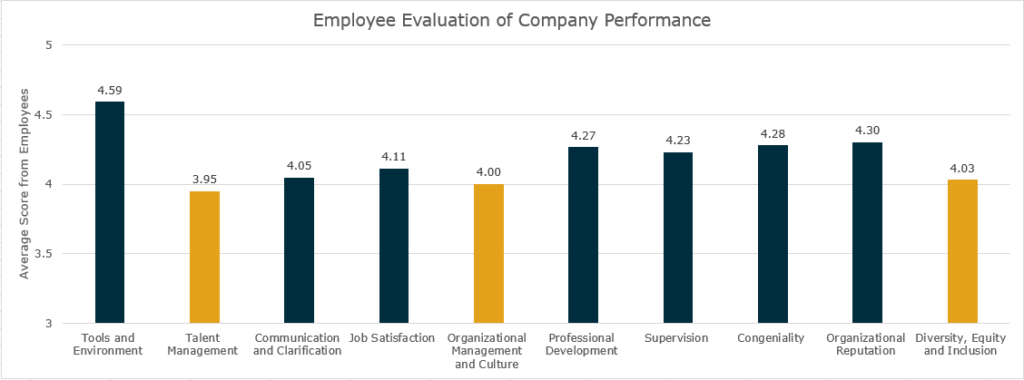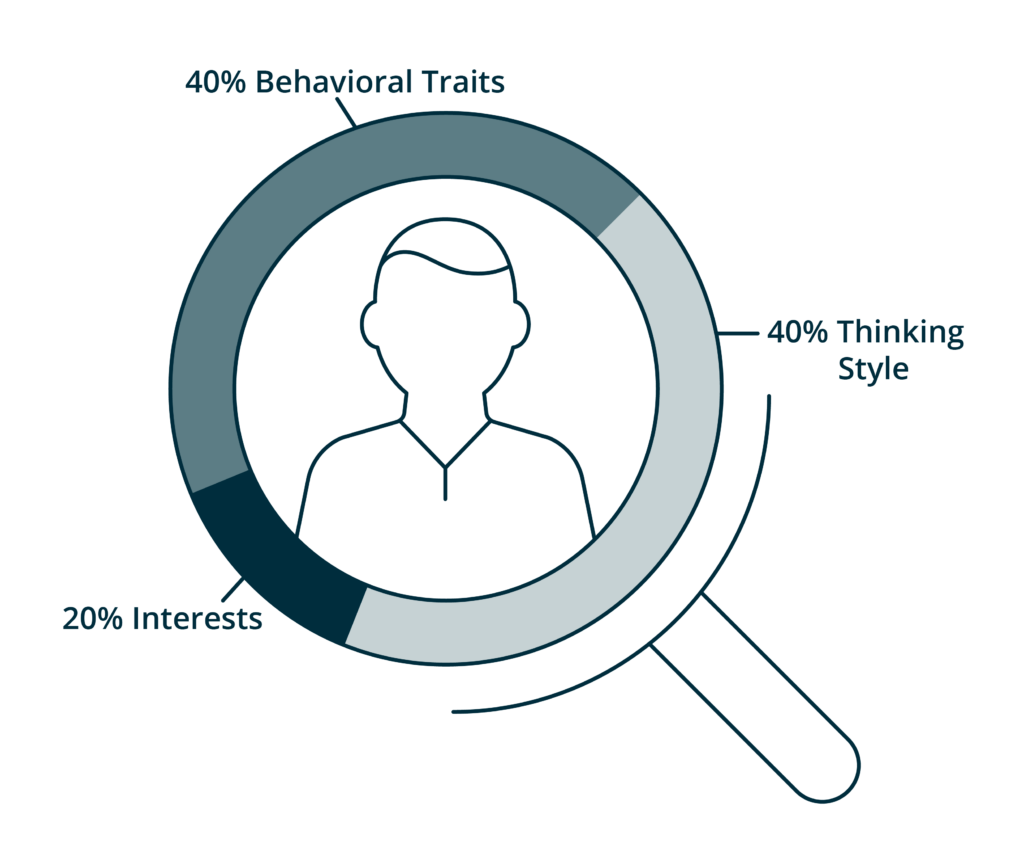There is a philosophical concept around “finite and infinite games” that can be extended to how businesses can effectively approach talent acquisition. This concept (first introduced by author James Carse and more popularized for business by Simon Sinek) suggests that we all are involved in both finite and infinite games and it’s important to know which one you’re playing. Business, for reference, is an infinite game. It will continue to perpetuate long after we’re gone and there are no set rules or known competitors as things are ever-changing. Talent acquisition, as a part of the larger organization, must be approached using an infinite model. Especially in the insurance and wealth management industries, this means insurance recruiters and the hiring processes must qualify candidates based on the ever-changing infinite ideas of culture, character, and competency.
Does the candidate just “fit in” or do they add to your culture?
When you hire for culture, it’s essential to remember that company culture is loosely defined as the tactical social order of an organization; its personality; its shared beliefs and values. It shapes attitudes and drives behaviors. In a recent study, 70% of employees and leaders say culture is more important to business success than strategy and operations.1 A great culture increases job satisfaction and ultimately production. Knowing that, why aren’t we spending more time assessing the cultural fit and having extreme transparency with the organization around what we’re looking for?
MarshBerry conducts Employee Engagement Surveys with firms throughout the industry. Recent data suggests that employees rank Organizational Management and Culture along with Diversity, Equity and Inclusion (DEI), near the bottom (4.00 and 4.03 respectively out of 5) in their evaluation of their employer. We can conclude that employees feel there’s room for improvement in internal hiring practices, DEI strategy, and overall commitment to culture.

The good news: small changes make a big difference. Start by clearly, and truthfully, articulating the core values of your company to candidates. Explain how you support one another, how you fix problems internally, and what part employees play in shaping the future of the business. From there, ask candidates how their friends and colleagues would describe them. How do they manage conflict with co-workers? How have they changed over the past five years? Are they taking time to better themselves and others around them? Ultimately you want to identify if this person will add to your culture, not just fit it.
Can humans accurately identify character?
When you aim to hire for character, the process is a lot like catching a leaf in the wind. Character, by definition, is the mental and moral qualities distinctive to that person. Employees with a high level of moral character have downstream effects: They’re more trusting of one another, and work harder to foster an environment of collaboration and innovation. This increased level of teamwork enables stronger application of corporate strategies, spurring faster growth and increased profits.
However, discerning character, and to a greater degree integrity, can be a daunting task in the interview process. We must contend with our own affinity bias. Values can be ambiguous or even faked – 33% of people admit to lying on their resumes.2 Because our own assessment of character may not be enough – progressive hiring practices should include AI-driven assessments, which can help affirm or challenge human personal assessment.

MarshBerry, as part of our talent acquisition consulting services, administers the PXT Select Profile assessment to all candidates which includes questions to better identify a position’s thinking style, behavior traits, and general interests to determine fit. This allows our clients to make smarter hiring decisions based on scientifically validated and actionable data, focused on finite elements. Fortunately, adding AI to your process is both easy and cost-efficient. Our team can help you identify the best tools for your needs.
Hiring competency for the role and beyond
Simply put, when you hire for competency, you’re looking at a candidate’s skill, knowledge, and ability to do the job. In most cases, historical results are an indication of future potential. As an organization, you must first identify the core competencies required for success within the position. These change over time with market strategy, personnel, and client needs. Once identified, evaluating a candidate’s demonstration of those competencies is a matter of conversation. At its core, this is what recruiters and HR specialists are trained to do. Where the skill set often falls short is in understanding the projected future competencies for the role. Remember, we must hire with an infinite mindset. Can this person adapt quickly to succeed in the position’s current capacity AND does the candidate demonstrate the competencies needed to execute beyond today’s strategy?
Top-level hiring practices examine candidates when you hire for culture, hire for character, and hire for competency at equal value. Shift your focus from a finite process that only considers the needs of “results now” driven operations to one that starts with the infinite ideals of the business in mind. Lower turnover, higher employee satisfaction, and increased profits will result.
If you have questions about Today’s ViewPoint or would like to learn more about MarshBerry’s Talent Advisory, email or call Bryan Lake, Vice President, at 616.214.3335.
